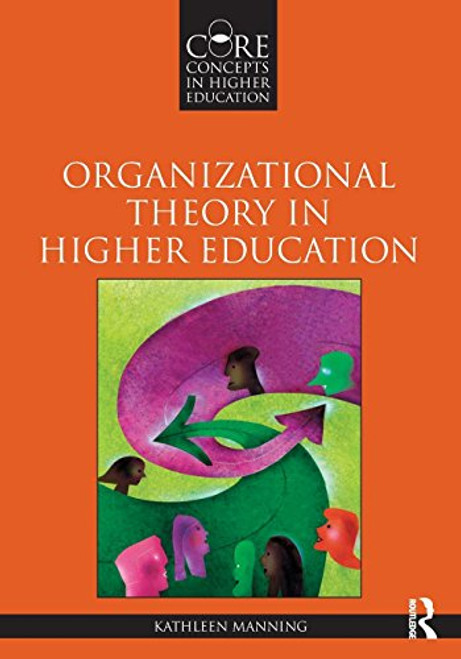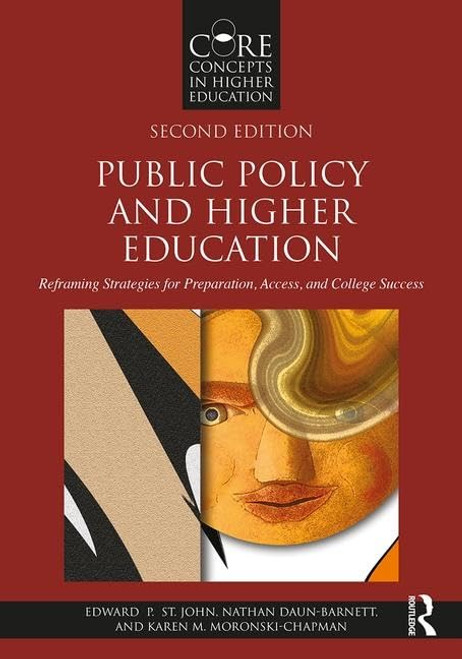Organizational Theory in Higher Education offers a fresh take on the models and lenses through which higher education can be viewed by presenting a full range of organizational theories, from traditional to current. By alternating theory and practice chapters, noted scholar Kathleen Manning vividly illustrates the operations of higher education and its administration. Mannings rich and interdisciplinary treatment enables leaders to gain a full understanding of the perspectives that operate on a college campus and ways to adopt effective practice in the context of new and continuing tensions, contexts, and challenges. Special features include: A unique presentation of each organizational model that includes both a theory chapter for contextual background and a case chapter illustrating the perspective in practice Coverage of eight organizational approaches, both traditional as well as those often excluded from the literatureorganized anarchy, collegium, political, cultural, bureaucratic, new science, feminist, and spiritual. Consistent organizational elements across each theoretical chapterincluding theoretical foundation, structure, metaphor, characteristics, and strengths and weaknessesso that readers can better assess appropriate fit of theory to particular situations Questions for Discussion and Recommended Readings assist the reader to make connections to their practice and to develop an in-depth understanding of the organizational theories Organizational Theory in Higher Education provides a clear understanding of how organizational models can be used to elicit the most effective practice and to navigate the complexity of higher education today. This important book is ideal for courses in higher education administration and organizational theory and for administrators and practitioners seeking to gain insight into innovative ways to approach organizations.
Organizational Theory in Higher Education (Core Concepts in Higher Education)
Brand: Routledge
MSRP:
Was:
Now:
$69.14 - $83.28
(You save
)
(No reviews yet)
Write a Review

Write a Review

Brand: Routledge
Organizational Theory in Higher Education (Core Concepts in Higher Education)
- SKU:
- UPC:
- 9780415874670
- Maximum Purchase:
- 2 units
- Binding:
- Paperback
- Publication Date:
- 2/6/2013
- Release Date:
- 12/12/2012
- Author:
- Manning, Kathleen
- Language:
- English: Published; English: Original Language; English
- Edition:
- 1
- Pages:
- 232

Routledge
Public Policy and Higher Education (Core Concepts in Higher Education)
MSRP:
Was:
Now:
$82.21 - $112.89

Brand: Stylus Publishing
The Impact of Culture on Organizational Decision-Making: Theory and Practice in Higher Education
MSRP:
Was:
Now:
$53.08 - $76.01

Brand: Jossey-Bass
Understanding and Facilitating Organizational Change in Higher Education in the 21st Century
MSRP:
Was:
Now:
$15.43 - $36.50

Brand: Rowman Littlefield Publishers
Managing Diversity Flashpoints in Higher Education (ACE/Praeger Series on Higher Education)
MSRP:
Was:
Now:
$300.00

Derek Bok
Higher Education in America (The William G. Bowen Memorial Series in Higher Education)
MSRP:
Was:
Now:
$25.73 - $38.30

Higher Education Directory 2019
MSRP:
Was:
Now:
$102.90 - $300.00

Turnaround Leadership for Higher Education
MSRP:
Was:
Now:
$70.88 - $81.48

Simon & Schuster Books for Young Readers
H.I.V.E.: Higher Institute of Villainous Education
MSRP:
Was:
Now:
$30.37 - $39.67
!

